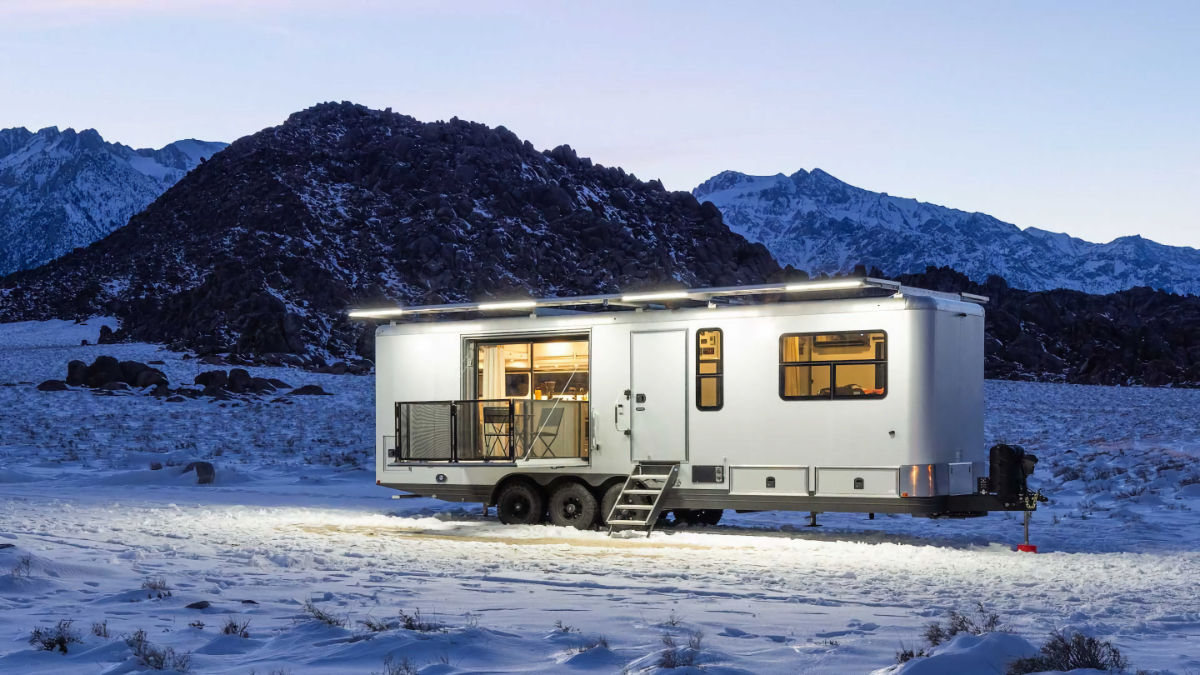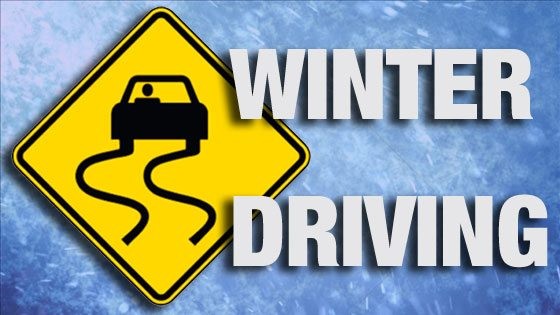Winter RV Living: Stay Warm, Safe & Cozy with These Tips!
Winter RV road trips offer a unique opportunity to explore the stunning landscapes blanketed in snow, from quiet forests to majestic mountain ranges. However, the charm of winter travel requires careful planning, preparation, and awareness of the season’s challenges. In this comprehensive guide, we provide essential tips, practical advice, and safety measures to ensure that your winter RV adventure is both memorable and secure.

Essential Preparations for a Winter RV Road Trip
1. Choose the Right RV for Winter Travel
Not all RVs are created equal when it comes to winter travel. Opt for a four-season RV designed to withstand colder temperatures. These models typically feature better insulation, dual-pane windows, heated holding tanks, and robust heating systems. Ensure your RV is equipped with all-weather tires, and consider carrying tire chains if you’ll be traveling in regions prone to heavy snowfall or icy roads.
2. Winterize Your RV: Insulate and Protect
Proper winterization is critical to avoid frozen pipes, engine troubles, and heat loss. Here are the key steps to winterize your RV:
- Insulate Windows and Doors: Use thermal curtains or reflective foil insulation on windows. Apply weather stripping to door frames to prevent drafts.
- Protect Water Systems: Add RV antifreeze to water lines, tanks, and the water heater. Ensure you know how to drain water systems properly if necessary.
- Skirting and Underbelly Insulation: Consider RV skirting to prevent cold air from circulating under the RV. Insulate the underbelly with foam board or heavy-duty tarps to retain heat.
- Heated Water Hose: Invest in a heated water hose to keep your fresh water supply from freezing. Make sure it is well-insulated and rated for sub-zero temperatures.
3. Equip Your RV with Essential Winter Gear
Having the right gear is crucial for a safe and comfortable winter road trip. Consider the following essentials:
- Emergency Kit: Include items like a first-aid kit, flashlight, extra batteries, snow shovel, ice scraper, road flares, and tire chains.
- Cold Weather Clothing and Bedding: Pack thermal layers, waterproof outerwear, gloves, hats, scarves, and insulated boots. Include extra blankets, heated blankets, and sleeping bags rated for low temperatures.
- Heating Options: Ensure you have a reliable propane heater, space heaters, or a diesel-fired heater, and that your onboard furnace is in good working order. Carry extra fuel and know where to refill.
- Portable Generator: A generator provides an alternative power source if shore power is unavailable or if your RV batteries run low.

Planning Your Winter Route: Safety and Scenery
4. Select the Right Route and Check Weather Conditions
Winter road trips require careful route planning. Choose roads that are well-maintained and frequently plowed. Avoid remote areas with limited access to help in case of emergencies. Keep the following points in mind:
- Use GPS and Mapping Tools: Use RV-specific GPS or apps like Google Maps and RV LIFE Pro to find suitable routes and avoid steep grades or low-clearance bridges.
- Monitor Weather Conditions: Regularly check weather forecasts and road conditions. Websites like the National Weather Service or apps like Weather Underground provide real-time updates.
- Plan for Daylight Travel: Days are shorter in winter, so plan your driving hours accordingly. Avoid driving in the dark, especially on unfamiliar roads or in inclement weather.
5. Prepare for Emergencies and Delays
Unexpected situations can arise during winter travel. Prepare for possible road closures, mechanical issues, or weather delays:
- Stay Connected: Have a fully charged cell phone and consider a backup power bank. Invest in a satellite phone or emergency beacon for remote areas with poor cell reception.
- Stock Up on Supplies: Carry extra food, water, propane, medications, and any necessary pet supplies. Aim to have at least three days’ worth of essentials.
- Know Your Exit Points: Identify safe places to pull over, such as rest areas, gas stations, or RV parks that remain open in winter.
Keeping Warm and Comfortable on the Road
6. Optimize Your RV’s Heating System
Maintaining a warm and comfortable environment is key to enjoying your winter road trip. Here’s how to optimize your RV’s heating:
- Regular Maintenance: Ensure your furnace, heaters, and defrost systems are in top condition. Clean or replace air filters, inspect the exhaust vents, and check for any gas leaks.
- Maximize Insulation: Use thermal curtains, window covers, and insulated skirting to retain heat. Place rugs or carpets over the floor to reduce heat loss.
- Utilize Alternative Heat Sources: Electric space heaters, portable propane heaters, or diesel heaters can provide supplementary heat. Always ensure proper ventilation to prevent carbon monoxide buildup.
7. Cooking and Meal Planning for Cold Weather
Cooking in cold weather presents unique challenges, but with a few adjustments, you can enjoy hot meals that keep you warm and energized:
- Plan Easy, One-Pot Meals: Soups, stews, and casseroles are perfect for winter cooking. They provide warmth, are easy to prepare, and minimize cleanup.
- Use Efficient Appliances: A pressure cooker or slow cooker can save time and propane. Utilize outdoor grills when possible to prevent indoor condensation and moisture buildup.
- Stock Non-Perishable Foods: Keep canned goods, instant soups, pasta, rice, and snacks that don’t require refrigeration or complex preparation.

Safety Tips for Driving and Parking in Winter
8. Master Winter Driving Techniques
Driving an RV in winter requires special skills and caution. Here’s how to stay safe on the road:
- Slow Down and Maintain Distance: Drive slower than usual and maintain a greater distance between your RV and other vehicles. This provides more time to react to icy patches or sudden stops.
- Brake and Steer Gently: Avoid sudden braking or sharp turns. Use lower gears when descending hills to maintain control and prevent skidding.
- Be Prepared for Slippery Surfaces: Keep an eye out for black ice, especially on bridges, shaded areas, and intersections. Apply sand or kitty litter to improve traction if needed.
9. Choose Safe Overnight Parking Spots
Selecting a safe location to park overnight is crucial in winter conditions:
- Opt for Full-Service RV Parks: Choose parks that offer full hookups, including electric, water, and sewer connections. Confirm that the park is open year-round and accessible in winter.
- Avoid Low-Lying Areas: Park on high ground to avoid flooding from melting snow or ice. Ensure the parking spot is level and free from ice accumulation.
- Stay Visible and Accessible: Park where you can be easily seen by passing vehicles or emergency services. Avoid parking too close to trees that may shed heavy snow or ice.
Maintaining Your RV in Cold Weather
10. Protect Your RV’s Engine and Batteries
Cold temperatures can affect your RV’s engine and battery performance. Follow these steps to prevent breakdowns:
- Engine Maintenance: Regularly check the oil, coolant, and antifreeze levels. Use engine block heaters or battery warmers to prevent cold starts.
- Battery Care: Keep your batteries charged and insulated. Disconnect batteries when not in use to prevent drain. Consider investing in lithium batteries, which perform better in cold weather.
11. Prevent Freezing and Moisture Buildup
Cold air combined with indoor heating can lead to condensation, mold, and mildew. To avoid these issues:
- Ventilate Properly: Use roof vents or window fans to circulate fresh air. Install dehumidifiers or moisture absorbers to reduce humidity levels.
- Monitor Indoor Moisture: Wipe down windows, walls, and other surfaces regularly. Avoid hanging wet clothing or towels indoors.
- Use Moisture Control Products: Place silica gel packs or calcium chloride moisture absorbers in storage areas, closets, and cabinets.
Conclusion
A winter RV road trip can be an unforgettable experience with the right preparation, equipment, and mindset. By choosing the right RV, properly winterizing your vehicle, planning your route, and taking necessary precautions, you’ll be well on your way to a safe and enjoyable adventure. Embrace the unique beauty of winter landscapes while staying warm, comfortable, and secure on the road.
Winter RV Maintenance Checklist

By following these guidelines, you will be fully prepared to handle the challenges of winter RV road trips, allowing you to enjoy the tranquility and beauty of the season while staying safe and warm. Happy travels!